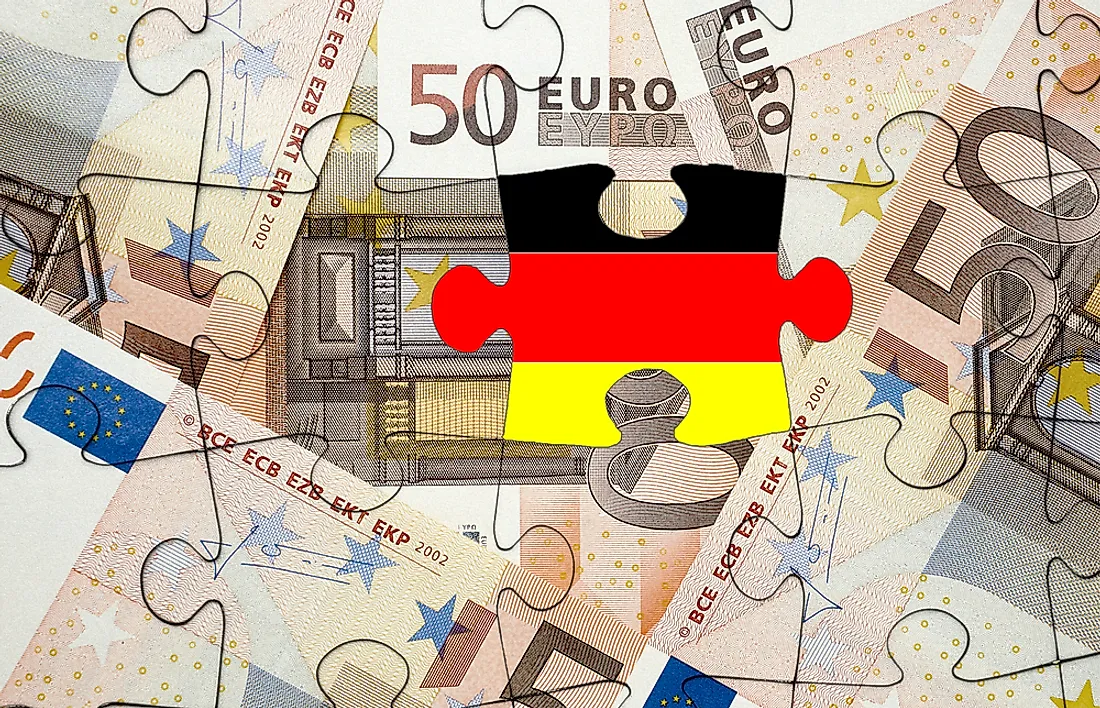The Biggest Economies in Europe

The economy of the European continent encompasses at least 740 million people from 50 states. While the wealth of the different nations vary, the states that are considered poor in Europe are richer than some of the wealthy nations in other continents regardless of which method is used to measure the economy. These methods could either use the exchange rates of the nation’s currency while ignoring the living standard and cost of living (nominal gross domestic product), or the method could ignore exchange rates and instead focus on the standards and cost of living otherwise known as the purchasing power parity (PPP) gross domestic product (GDP). Both nominal GDP and PPP are used to provide greater perspective on a state’s economy.
Strongest European Economies
Together, the economies in this list contribute around 22.29% of the total global economy, with the inclusion of Turkey which whose territory spreads into two continents; Europe and Asia. A significant amount of that percentage comes from the top seven countries in the list compiled by the International Monetary Fund (IMF). Ranking the continents according to their wealth, Europe is the third wealthiest continent. Asia is first while North America is second.
Germany, the fourth strongest economy in the world, is the strongest economy in Europe with an economy worth $3.4 trillion, followed by the United Kingdom with an economy worth $2.9 trillion. France is third on the list with $2.4 trillion. The UK and France place them in fifth and six positions, respectively in the world. Italy and Russia complete the top five of Europe with economies worth $1.8 trillion and $1.5 trillion respectively. These five nations contribute around 15% of the total world economy with a combined value of around $12 trillion. These five countries, together with Spain ($1.2 trillion and 1.58% global share), are all among the top fifteen richest nations in the world. Therefore, Europe accounts for more than half of the top ten richest countries on the planet.
Of the fifteen nations in the list, Denmark ranks last with a share of 0.390% of the global GDP and an economy worth $304 billion. The other two countries that make up the bottom three are Austria at position fourteen, and an economy worth $383 billion (0.492%), and Norway is twelfth with a share of 0.503% ($392 billion) of the world’s economy.
Comparing these figures with those released in 2016 by the IMF, there is very little change in the ranking. The list is largely the same with the exception that Turkey has been included in the 2017 list as being a part of Europe. Norway has also improved slightly and now is above Austria. As a result of Turkey’s inclusion in 2017’s list, then Ireland misses a spot in the top fifteen.
Method Used to Compile the List
The nominal method of finding GDP is used in this list. If comparisons were to be made with the PPP list, then it drastically changes things. For example, Denmark would lose 22 places and be position 60 in the global ranking as opposed to position 38 globally. The stronger economies are not affected much.
The Biggest Economies in Europe
| Rank | Country | Share of Global GDP (Percentage) |
|---|---|---|
| 1 | Germany | 4.39 |
| 2 | United Kingdom | 3.2 |
| 3 | France | 3.1 |
| 4 | Italy | 2.32 |
| 5 | Russia | 2. |
| 6 | Spain | 1.58 |
| 7 | Turkey | 1.02 |
| 8 | Netherlands | 0.978 |
| 9 | Switzerland | 0.845 |
| 10 | Sweden | 0.650 |
| 11 | Poland | 0.619 |
| 12 | Belgium | 0.593 |
| 13 | Norway | 0.503 |
| 14 | Austria | 0.492 |
| 15 | Denmark | 0.390 |











